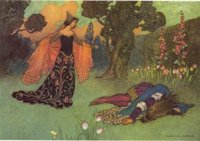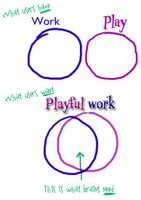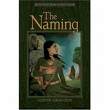Alright...Alex and Karen know that I've been having technological issues with my iMovie. There is no possibility that it will be done by Tuesday and I think (maybe) I've come to terms with that. However, I REALLY want to make this movie! More for my husband who says..."How'd that movie come out? I really want to see it..." GRRR!!
I am going to try again on Tuesday when I'm in Cortland, but I can only access my footage on the mac I was on last week in class, since my stuff is stuck (permanently?) on that computer. I have tried to delete extra clips that I probably don't need, but the program shuts down before I can save it and/or burn it. So I did that A LOT before I gave up.
I think that computer has a death wish for my iMovie.
I'm sure there's something wrong with the computer or my disk or both. I'm also sure that I don't really like iMovie and I'm positive that I am frustrated beyond my belief. After spending a couple of hours on Thursday trying to just transfer the info to my disk (and walking away much angrier than when I sat down), I decided to do something productive with my time.
I started working on my final project, using iMovie (grr...) to make hypertext poetry. While I'm using this program because it is available, I wonder what "extras" and "benefits" Flash has that I do not have at my disposal. I've only done about a minute's worth of "La Belle Dame san Merci," and I already think there are too few options to play with. I'll keep messing with it...
Does anyone know why the still pictures I use in iMovie are fuzzy and out of focus after I import them in??!?
And there are rules (yes, rules) as to how long clips have to be before and after using transitions ( I know 5 seconds is 5 seconds, but...).
28 October 2006
26 October 2006
Philosophy of My Teaching (Before I Actually Teach)

I decided that since my wisdom was FLOWING today when I commented to Karen's post (at her most insistent pleading and begging) that I would repost it where it wouldn't get buried in the comment section of the course blog. I'm thinking that this is the beginning of my "Teaching Philosophy," and hey, it sounded good!
My passion for teaching stems from my own long, winding career as a professional student, and a professional learner. Just as I have read and written reams and reams, that is what I want for my students: to learn by experiencing as much as possible while in my future classroom.
While the content may be dictated by the administration, there are SO MANY places that Dickens and Bronte can go, that mere love for literature and passion are the tools to open up the rich world of literature for students.
I'd say that teaching (successful teaching whereby students are actively engaged and questioning/learning) is 2 parts PASSION, 1 part CONTENT/KNOWLEDGE. If the teacher is enthusiastic and exhibits boundless energy/creativity/excitement toward the subject or novel or writing assignment (or graphic novel...), then the students will be influenced by that passion, and decide, "Hey, this might be interesting," or "This lady is wacked, but maybe she just might keep me from falling asleep today...".
Either way: SUCCESS! They're awake, they're intrigued, and they're present!
I think one of the many challenges of teaching is to motivate the students, not only to do the work, but to want to show their creativity and originality IN the work they do, to exhibit the same passion we do, but where it matters to them.
Sorry for the rambling.
My passion for teaching stems from my own long, winding career as a professional student, and a professional learner. Just as I have read and written reams and reams, that is what I want for my students: to learn by experiencing as much as possible while in my future classroom.
While the content may be dictated by the administration, there are SO MANY places that Dickens and Bronte can go, that mere love for literature and passion are the tools to open up the rich world of literature for students.
I'd say that teaching (successful teaching whereby students are actively engaged and questioning/learning) is 2 parts PASSION, 1 part CONTENT/KNOWLEDGE. If the teacher is enthusiastic and exhibits boundless energy/creativity/excitement toward the subject or novel or writing assignment (or graphic novel...), then the students will be influenced by that passion, and decide, "Hey, this might be interesting," or "This lady is wacked, but maybe she just might keep me from falling asleep today...".
Either way: SUCCESS! They're awake, they're intrigued, and they're present!
I think one of the many challenges of teaching is to motivate the students, not only to do the work, but to want to show their creativity and originality IN the work they do, to exhibit the same passion we do, but where it matters to them.
Sorry for the rambling.
24 October 2006
NYSEC Wikis
Here are the wikis I created, and plan to update with more notes and thoughts from the seminars:


All NIGHT in a Day and Enchantment in the Classroom


All NIGHT in a Day and Enchantment in the Classroom
Check out the website, particularly Nicole Sear's on the "Night" wiki; there are SO many resources she had made available!! (You'll have to go there; I'm not putting a link up!)
Note: Information on both of these wikis are from handouts and/or notes I took during the seminar.
Hopefully I'll be able to get a wiki up next week on my part of the seminar on YA Lit!! Be advised!
21 October 2006
More Inspiration from Albany

Since there were multiple seminars to chose from at the conference, and only the opportunity to attend three, I thought I would expound a bit on what I saw, learned, and internalized.
After listening to the keynote speaker, Carol Jago, I attended a workshop on integrating fairy tales into the classroom. Nora Feingold was the presenter on "Writing for a Real Audience: The Fairy Tale Project: Enchantment in the Classroom."
A brief outline from her presentation included:
-Immersing students in the genre of fairy tales, starting with the traditional Western versions, and progressing through alternative adaptations from other areas of the world.
Western versions, and progressing through alternative adaptations from other areas of the world.
-Literary analysis, comparison of the elements of the genre, and learning to listen with a "writer's ear" were integral to the process.
-Focus on revision (content, style, and mechanics).
-Students reflected and evaluated their work.
-Publication included a bound, hardcover book (publishing company: Nationwide Learning).
-Authentic audience: reading to elementary students in the same district.
For more information, I will be creating a wiki on the seminars I attended last Thursday...
The second seminar I attended was presented by Betsy MacNamee and Barbara Searle on "Tidbits, Tips, and Tricks for the Novice Teacher." This seminar focused primarily on classroom management, creating a safe environment for students to learn, establishing a concrete syllabus/expectations for students, first day activities for community building, student empowerment through choice (on exams, quizzes, etc.), documentation of correspondences with parents for the future, and a five-week reflection letter that is emailed to students.
Searle on "Tidbits, Tips, and Tricks for the Novice Teacher." This seminar focused primarily on classroom management, creating a safe environment for students to learn, establishing a concrete syllabus/expectations for students, first day activities for community building, student empowerment through choice (on exams, quizzes, etc.), documentation of correspondences with parents for the future, and a five-week reflection letter that is emailed to students.
After a great lunch, I attended the *best* seminar presented by Nicole Sear s and Daniel Sullivan entitled "All Night in a Day." Since I plan to create a wiki about this (and only want to do it once) I will tell you that these two teachers were able to immerse their students in a classroom museum on the Holocaust, and then proceeded to read the book Night all in one day. The resources from this seminar are boundless. I'll share more when my wiki is in-progress.
s and Daniel Sullivan entitled "All Night in a Day." Since I plan to create a wiki about this (and only want to do it once) I will tell you that these two teachers were able to immerse their students in a classroom museum on the Holocaust, and then proceeded to read the book Night all in one day. The resources from this seminar are boundless. I'll share more when my wiki is in-progress.
After listening to the keynote speaker, Carol Jago, I attended a workshop on integrating fairy tales into the classroom. Nora Feingold was the presenter on "Writing for a Real Audience: The Fairy Tale Project: Enchantment in the Classroom."
A brief outline from her presentation included:
-Immersing students in the genre of fairy tales, starting with the traditional
 Western versions, and progressing through alternative adaptations from other areas of the world.
Western versions, and progressing through alternative adaptations from other areas of the world.-Literary analysis, comparison of the elements of the genre, and learning to listen with a "writer's ear" were integral to the process.
-Focus on revision (content, style, and mechanics).
-Students reflected and evaluated their work.
-Publication included a bound, hardcover book (publishing company: Nationwide Learning).
-Authentic audience: reading to elementary students in the same district.
For more information, I will be creating a wiki on the seminars I attended last Thursday...
The second seminar I attended was presented by Betsy MacNamee and Barbara
 Searle on "Tidbits, Tips, and Tricks for the Novice Teacher." This seminar focused primarily on classroom management, creating a safe environment for students to learn, establishing a concrete syllabus/expectations for students, first day activities for community building, student empowerment through choice (on exams, quizzes, etc.), documentation of correspondences with parents for the future, and a five-week reflection letter that is emailed to students.
Searle on "Tidbits, Tips, and Tricks for the Novice Teacher." This seminar focused primarily on classroom management, creating a safe environment for students to learn, establishing a concrete syllabus/expectations for students, first day activities for community building, student empowerment through choice (on exams, quizzes, etc.), documentation of correspondences with parents for the future, and a five-week reflection letter that is emailed to students.After a great lunch, I attended the *best* seminar presented by Nicole Sear
 s and Daniel Sullivan entitled "All Night in a Day." Since I plan to create a wiki about this (and only want to do it once) I will tell you that these two teachers were able to immerse their students in a classroom museum on the Holocaust, and then proceeded to read the book Night all in one day. The resources from this seminar are boundless. I'll share more when my wiki is in-progress.
s and Daniel Sullivan entitled "All Night in a Day." Since I plan to create a wiki about this (and only want to do it once) I will tell you that these two teachers were able to immerse their students in a classroom museum on the Holocaust, and then proceeded to read the book Night all in one day. The resources from this seminar are boundless. I'll share more when my wiki is in-progress.20 October 2006
Changed

I know this is going to sound absolutely off the wall, but after the conference yesterday, I actually FEEL differently. I am changed, and for the better. It seems there is such a distinct different between the -before and the after- that I am stunned it could happen in a short period of time...
What I'm trying to say is that the experience I had at the NYSEC conference, and maybe others felt it too, is one of profound awareness and professional mingling that made me feel empowered. Besides acquiring boatloads (yes, I said boatloads) of "stuff" to do in the classroom, I *finally* feel like I get it: why I want to do this, why there are so many others out there, why it is an amazing experience to witness the eagerness of long-time and short-time teachers who want to know more about the lit kids WANT to read, why it is so great to share ideas as a professional group...I could go on forever.

I think that being a presenter, with Karen, Jack, James, Chrissy, Dave, and Matt, will go down in my life experiences as a Top Ten...I know, I know, I'm not that old to be able to be absolutely certain about my key experiences, but I think that this conference has convinced me about the greatness of the teaching profession where the teacher ed program has failed, or often times, let me down. It has taught me that we are all learning to teach e v e r y d a y and that teaching is t r i a l a n d e r r o r.
I guess, what I'm trying to say, even though I lamented each step of the way, almost dreading the presentation just because I didn't KNOW what to expect, I am profoundly aware of the honor it was to be able to do 12-minute seminars and talk with teachers from all over the state who are so enthusiastic and who absorb the lists of titles to give to their students...
I guess one part of the presentation that each of us exhibited was a distinct PASSION for what we were discussing (here are the topics we did: Matt (graphic novels), Dave (sci fi), Jack (body image), Chrissy (Middle Easter Lit), James (N.A. Lit), and me (Fantasy), and this passion was almost tangible as we discussed these novels and these genres...
Chrissy, Matt, and I discussed on the way home going to the NYSEC and NCTE conferences in NYC next year as presenters... anyone else feel like they NEED to join us (especially after such a great testimony?)?
Besides, the lunch was great, and who can resist good food?
What I'm trying to say is that the experience I had at the NYSEC conference, and maybe others felt it too, is one of profound awareness and professional mingling that made me feel empowered. Besides acquiring boatloads (yes, I said boatloads) of "stuff" to do in the classroom, I *finally* feel like I get it: why I want to do this, why there are so many others out there, why it is an amazing experience to witness the eagerness of long-time and short-time teachers who want to know more about the lit kids WANT to read, why it is so great to share ideas as a professional group...I could go on forever.

I think that being a presenter, with Karen, Jack, James, Chrissy, Dave, and Matt, will go down in my life experiences as a Top Ten...I know, I know, I'm not that old to be able to be absolutely certain about my key experiences, but I think that this conference has convinced me about the greatness of the teaching profession where the teacher ed program has failed, or often times, let me down. It has taught me that we are all learning to teach e v e r y d a y and that teaching is t r i a l a n d e r r o r.
I guess, what I'm trying to say, even though I lamented each step of the way, almost dreading the presentation just because I didn't KNOW what to expect, I am profoundly aware of the honor it was to be able to do 12-minute seminars and talk with teachers from all over the state who are so enthusiastic and who absorb the lists of titles to give to their students...
I guess one part of the presentation that each of us exhibited was a distinct PASSION for what we were discussing (here are the topics we did: Matt (graphic novels), Dave (sci fi), Jack (body image), Chrissy (Middle Easter Lit), James (N.A. Lit), and me (Fantasy), and this passion was almost tangible as we discussed these novels and these genres...
Chrissy, Matt, and I discussed on the way home going to the NYSEC and NCTE conferences in NYC next year as presenters... anyone else feel like they NEED to join us (especially after such a great testimony?)?
Besides, the lunch was great, and who can resist good food?
18 October 2006
iMovie Musings

Well, I have been debating and debating about this whole movie idea, and the more I think about it, the less time I have...I mean, IF there were more time to script, storyboard, and plan out the movie, I would be much more comfortable with this assignment. Also, without clear delineations about content, material, etc., I'm uncertain if my idea (I've had it for about 14 hours, so I think it's a keeper...) will hold merit.
Here's my idea: Has ANYONE ever been to Newark Valley, NY? With my video, you will be able to feel like you're actually there! That's it! Just enough to make you wonder...
Here's my idea: Has ANYONE ever been to Newark Valley, NY? With my video, you will be able to feel like you're actually there! That's it! Just enough to make you wonder...

17 October 2006
Flashy Poetry

Alrighty, for my project, I've decided to do Flash Poetry, or in this case iMovie Poetry since I'll try to use iMovie instead of Flash.
I want to create a sequence of hypertext poetry, using my own verse and some widely-known (or just some of my favorites) that I could use to introduce poetry to students. Since I will be student teaching with Jacqueline Deal next semester, and I want to teach a course in 19th c. Romantics (using Byron, Shelley, and Keats predominantly, as well as a novel), this would be a great way to get students invovled in poetry, and to make it more exciting!
Escapism
 Since the NYSEC conference is coming up shortly, we'll be leaving tomorrow, I decided I should fill y'all in on what I've been keeping myself busy with lately.
Since the NYSEC conference is coming up shortly, we'll be leaving tomorrow, I decided I should fill y'all in on what I've been keeping myself busy with lately.My presentation is on Fantasy YA Lit that should be included in the classroom library for students' perusal.
So, I have been doing LOTS of research, aka reading for fun to amass a larger list of titles.

Here are some great titles to check out: Christopher Paolini's Eragon and Eldest, Alison Croggon's The Naming (and eventually when it arrives from b&n: The Riddle), Ursula K. LeGuin's Gifts (I think Voices is also in this "series"), and of course, Colfer's Artemis Fowl.
I hope you, too, can find a great way to ... escape.
10 October 2006
A Critique of My Podcast
In an attempt to assess my own enhanced podcast, I've decided to use the criteria that Jen and I came up with in the last class. Here it goes:
-Creativity
While creativity is a subjective form of criteria, I think that my podcast is creative in a unique way. Since I was able to use multiple resources that others in the class did not, I would say that this is a form of creativity. For instance, though I scripted the podcast, I created a dialogue between a Digital Native (closer to myself) and a Digital Immigrant (not so much myself, but somewhat) by asking my husband to represent an oppositional line of thought as the Immigrant. This representation went far beyond the audio input of the project, since the images corresponded with an overall mood or feeling of the differences between the two (ex. the images present during the Native's arguements were rapidly presented across the screen, while the stagnant, relic-like pictures of the Immigrant remained stationary).
-Mastery of Technology
Since the term "mastery" is a bit of a stretch from what I would call my acquired knowledge, I think I should specify that mastery does not mean complete control over a knowledge base in this instance, but it refers more to the acquisition of knowledge and the demonstration of skills learned. In this aspect, I think that my podcast fulfills this requirement, since the components of audio, music, images, and transitions occur in my podcast. Proficiency, though, is something that I could only gain from either re-working my initial podcast or starting a new project that could be used to increase my knowledge and learn more about Garageband and iTunes.
-Appropriate Images / Affective Music/Audio
The images that I used to correspond with the audio were appropriate and expressed a mood distinct to the Native and/or the Immigrant, as described above in 'Creativity." As far as the music is concerned, I think that differentiating the music between the two opposing sides was key, so as to keep the two distinct from one another. Also, in using a different intro/conclusion music, it seemed to function less as an intermediary, and more to represent the opening and closing of the podcast, which were both different from the dialogue in the middle.
-Conforms to Length Restrictions
My podcast fulfills the original length regulations, 5-7 minutes. At approximately 5 1/2 minutes long, this criteria has been met without over-doing the amount of information that is presented and discussed.
-Relevance to Audience/Assignment
One of the effects of the Flatworld as posed by Friedman is the great divide between those who have the knowledge of technology and how to manipulate it, and those who do not. Hence, the debate between the Native and the Immigrant is of great significance in the new world that is suddenly flat. While there is no reference to Friedman, per se, the entire dialogue between the Native and the Immigrant shows the clear distinctions between them in this new flat world.
-Vocal Representation is Suitable to Content/Affect
In using two separate voices, one male and one female, to represent the differing sides of technology knowledge base, it seemed the most effective use of my resources. Rather than a flat broadcast with one voice arguing both sides, I thought it would be better to show just how distinct the sides were by using the two voices.
-Overall Impression of Podcast
Biased as I am, I think that my enhanced podcast was a great first try. In following the assignment, I found relevant images to match with my overall affect/mood of being torn between the world of the Native and Immigrant that I feel I am faced with, as both a future teacher and as a person. I think that a lot of us feel this way, that we are part of both worlds, and that one may triumph over the other with serious side effects. While these effects may benefit our students in the classroom, or rather, out in the real world, what about the literature that we all know and love and want to share with our students? I think this contrast, this sense of being torn, is the real issue at the heart of my podcast: what will be lost with the changing literacies in the next hundred years? Will technology trump the print literacies and make them obsolete? What about reading and writing?
-Creativity
While creativity is a subjective form of criteria, I think that my podcast is creative in a unique way. Since I was able to use multiple resources that others in the class did not, I would say that this is a form of creativity. For instance, though I scripted the podcast, I created a dialogue between a Digital Native (closer to myself) and a Digital Immigrant (not so much myself, but somewhat) by asking my husband to represent an oppositional line of thought as the Immigrant. This representation went far beyond the audio input of the project, since the images corresponded with an overall mood or feeling of the differences between the two (ex. the images present during the Native's arguements were rapidly presented across the screen, while the stagnant, relic-like pictures of the Immigrant remained stationary).
-Mastery of Technology
Since the term "mastery" is a bit of a stretch from what I would call my acquired knowledge, I think I should specify that mastery does not mean complete control over a knowledge base in this instance, but it refers more to the acquisition of knowledge and the demonstration of skills learned. In this aspect, I think that my podcast fulfills this requirement, since the components of audio, music, images, and transitions occur in my podcast. Proficiency, though, is something that I could only gain from either re-working my initial podcast or starting a new project that could be used to increase my knowledge and learn more about Garageband and iTunes.
-Appropriate Images / Affective Music/Audio
The images that I used to correspond with the audio were appropriate and expressed a mood distinct to the Native and/or the Immigrant, as described above in 'Creativity." As far as the music is concerned, I think that differentiating the music between the two opposing sides was key, so as to keep the two distinct from one another. Also, in using a different intro/conclusion music, it seemed to function less as an intermediary, and more to represent the opening and closing of the podcast, which were both different from the dialogue in the middle.
-Conforms to Length Restrictions
My podcast fulfills the original length regulations, 5-7 minutes. At approximately 5 1/2 minutes long, this criteria has been met without over-doing the amount of information that is presented and discussed.
-Relevance to Audience/Assignment
One of the effects of the Flatworld as posed by Friedman is the great divide between those who have the knowledge of technology and how to manipulate it, and those who do not. Hence, the debate between the Native and the Immigrant is of great significance in the new world that is suddenly flat. While there is no reference to Friedman, per se, the entire dialogue between the Native and the Immigrant shows the clear distinctions between them in this new flat world.
-Vocal Representation is Suitable to Content/Affect
In using two separate voices, one male and one female, to represent the differing sides of technology knowledge base, it seemed the most effective use of my resources. Rather than a flat broadcast with one voice arguing both sides, I thought it would be better to show just how distinct the sides were by using the two voices.
-Overall Impression of Podcast
Biased as I am, I think that my enhanced podcast was a great first try. In following the assignment, I found relevant images to match with my overall affect/mood of being torn between the world of the Native and Immigrant that I feel I am faced with, as both a future teacher and as a person. I think that a lot of us feel this way, that we are part of both worlds, and that one may triumph over the other with serious side effects. While these effects may benefit our students in the classroom, or rather, out in the real world, what about the literature that we all know and love and want to share with our students? I think this contrast, this sense of being torn, is the real issue at the heart of my podcast: what will be lost with the changing literacies in the next hundred years? Will technology trump the print literacies and make them obsolete? What about reading and writing?
05 October 2006
Gather Up Your Arms, Teachers!
Wis. Lawmaker Urges Arming Teachers (source: http://www.reflector.com/news/content/shared-gen/ap/National/School_Weapons.html)
MADISON, Wis. — A state lawmaker, worried about a recent string of deadly school shootings, suggested arming teachers, principals and other school personnel as a safety measure and a deterrent.
It might not be politically correct, but it has worked effectively in other countries, Republican Rep. Frank Lasee said Wednesday.
"To make our schools safe for our students to learn, all options should be on the table," he said. "Israel and Thailand have well-trained teachers carrying weapons and keeping their children safe from harm. It can work in Wisconsin."
In Thailand, where officials have been waging a bloody fight with Muslim separatists for the last two years, some teachers carry weapons for self defense as they are viewed as part of the government. In Israel, teachers are not allowed to carry weapons in the school, but security guards at the entrances are armed.
Lasee said he planned to introduce legislation that would allow school personnel to carry concealed weapons. He stressed that it would hinge on school staff members getting strict training on the use of the weapons, and he acknowledged he would have to work around a federal law that bans guns on school grounds.
The director of school safety for Milwaukee Public Schools, Pete Pochowski, opposed the idea.
"Statistically, the safest place for a child to be is in school," Pochowski said. "We have problems in our schools, but not to the point where we need to arm our teachers and principals."
Last week, a 15-year-old Wisconsin student was arrested in the shooting death of Weston Schools Principal John Klang. The criminal complaint said the teen brought guns to school to confront students, teachers and the principal.
What does this mean? ...
What do you think?
Should teachers and administrators ARM themselves to protect them from potential violence from students?
What kind of issues about control and power would ensue?
If schools aren't already prisons, what will they be when employees start carrying guns to enforce law and order?
Would this only increase the violence in schools?
MADISON, Wis. — A state lawmaker, worried about a recent string of deadly school shootings, suggested arming teachers, principals and other school personnel as a safety measure and a deterrent.
It might not be politically correct, but it has worked effectively in other countries, Republican Rep. Frank Lasee said Wednesday.
"To make our schools safe for our students to learn, all options should be on the table," he said. "Israel and Thailand have well-trained teachers carrying weapons and keeping their children safe from harm. It can work in Wisconsin."
In Thailand, where officials have been waging a bloody fight with Muslim separatists for the last two years, some teachers carry weapons for self defense as they are viewed as part of the government. In Israel, teachers are not allowed to carry weapons in the school, but security guards at the entrances are armed.
Lasee said he planned to introduce legislation that would allow school personnel to carry concealed weapons. He stressed that it would hinge on school staff members getting strict training on the use of the weapons, and he acknowledged he would have to work around a federal law that bans guns on school grounds.
The director of school safety for Milwaukee Public Schools, Pete Pochowski, opposed the idea.
"Statistically, the safest place for a child to be is in school," Pochowski said. "We have problems in our schools, but not to the point where we need to arm our teachers and principals."
Last week, a 15-year-old Wisconsin student was arrested in the shooting death of Weston Schools Principal John Klang. The criminal complaint said the teen brought guns to school to confront students, teachers and the principal.
What does this mean? ...
What do you think?
Should teachers and administrators ARM themselves to protect them from potential violence from students?
What kind of issues about control and power would ensue?
If schools aren't already prisons, what will they be when employees start carrying guns to enforce law and order?
Would this only increase the violence in schools?
03 October 2006
Graphic Novels
This post is for anyone interested in teaching graphic novels in the classroom. I ran across this PDF when I was searching for tools to use fantasy lit in the classroom...I already sent it to James and Matt F:
http://www.scholastic.ca/bookfairs/printables/pdfs/Scholastic_BoneDiscussion.pdf
Hope it helps anyone who is interested...
http://www.scholastic.ca/bookfairs/printables/pdfs/Scholastic_BoneDiscussion.pdf
Hope it helps anyone who is interested...
Podcast Criteria

Jen W. & Dawn's Critique of Enhanced Podcast
Must meet this criteria for exemplary assessment:
-Creativity
-Mastery of Technology
-Appropriate Images / Affective Music/Audio
-Conforms to Length Restrictions
-Relevance to Audience/Assignment
-Vocal Representation is Suitable to Content/Affect
-Overall Impression of Podcast
so much pain...

Why is there so much violence recently in schools?
It is almost too much to wrap my thoughts around, with the recent shooting in Pennsylvania, it seems the violence is coming closer and closer to home.
From Foxnews.com, a list of the most recent shootings in the country:
A list of some fatal shootings at U.S. schools in recent years:
— Sept. 29, 2006: 15-year-old Eric Hainstock brought two guns to a school in rural Cazenovia, Wis., and fatally shot the principal, a day after the principal gave him a disciplinary warning for having tobacco on school grounds, police said.
— Sept. 27, 2006: Duane Morrison, 53, took six girls hostage at Platte Canyon High School in Bailey, Colo. Morrison, sexually assaulting them and using them as human shields for hours before fatally shooting one girl and killing himself.
— Aug. 24, 2006: Christopher Williams, 27, went to an elementary school in Essex, Vermont, looking for his ex-girlfriend, a teacher. He couldn't find her and fatally shot one teacher and wounded another, police said. Williams also killed his ex-girlfriend's mother, according to authorities. He shot himself twice in the head after the rampage, but survived and was arrested.
— March 21, 2005: Sixteen-year-old Jeff Weise shot and killed five schoolmates, a teacher and an unarmed guard at a high school on the Red Lake Indian Reservation in Minnesota before taking his own life. Weise had earlier killed his grandfather and his grandfather's companion.
For the rest of the list, here: http://www.foxnews.com/story/0,2933,217102,00.html
I am not sure what these shootings mean overall, but I know the implications cannot be good. The only way to have an affect on others seems to involve a gun and innocent children...when was this ever condoned as an appropriate form of action, and why is it occuring more and more frequently?
Bush plans to have a summit next week to discuss with educators and police about action to take within communities where such horrors have happened. But, how can it be prevented?
How can it be that after YEARS of shootings, NOW is the time for action? What about all of the shootings after Columbine? Why not THEN? Why do we have to wait so long before SOMETHING, ANYTHING is done? With all of these mindless killings and copycat murderers, there should be repercussions!
Considering the path we are all on, toward becoming teachers, I am strongly thinking about the danger and risk involved in entering this profession. While this weighs heavily on my mind, I am absolutely sure I would risk it. Though I say this, I do not believe it should even be something we have to consider...there is enough to worry about now...testing, reading, writing, students' literacies, etc... without having to fear for our lives.
When did our schools become a stage for violent upheavals to spill onto from society's retributions?
Why?
Projecting
What I want to do:
The idea that seems to speak to me the most, as far as a final project, is the idea of FLASH POETRY, or animated poetry as it is often called. I think that creating my own poetry and experimenting with Flash and/or Macromedia would be a great use of my time.
Future implications:
Using this in the classroom, as an introduction to a Poetry Unit of some sort, or introducing multimedia presentations/projects to students would be invaluable.
Foreseen problems:
I'm not really sure how to go about doing this. There seems to be no "one" way to produce and edit flash poetry. Perhaps it can be done in iMovie, but again, not sure. One resource I have yet to check out is my brother; art-wiz that he is, he might have some pointers for me. I've looked at A LOT of examples online, but I'm still a bit fuzzy on the "how-to's."
The idea that seems to speak to me the most, as far as a final project, is the idea of FLASH POETRY, or animated poetry as it is often called. I think that creating my own poetry and experimenting with Flash and/or Macromedia would be a great use of my time.
Future implications:
Using this in the classroom, as an introduction to a Poetry Unit of some sort, or introducing multimedia presentations/projects to students would be invaluable.
Foreseen problems:
I'm not really sure how to go about doing this. There seems to be no "one" way to produce and edit flash poetry. Perhaps it can be done in iMovie, but again, not sure. One resource I have yet to check out is my brother; art-wiz that he is, he might have some pointers for me. I've looked at A LOT of examples online, but I'm still a bit fuzzy on the "how-to's."
Good question, Katie
Why would we focus on who our students are or will be next year when we don't have them as students anymore?
So what do we do? Focus on students as they are in our classrooms, as they will be in the past, or how to help them with what they didn't learn the previous year?
It seems to be a very thin line that we walk as educators.
Who is the student in front of us? Where did she come from, where is she now, and where will she be in a year?
I think most of us don't have enough time to contemplate these questions, but try to ponder where the student is at the beginning of the year as opposed to where she will be at the end of the year.
As a teacher, where should our focus be? Should we try to maximize our efforts on the NOW or on the FUTURE of our students?
And really, is there really any difference in how we look at it?
How can we best help our students achieve: by looking at who they are in the present, or in who they will be (or hope to become) in the future?
So what do we do? Focus on students as they are in our classrooms, as they will be in the past, or how to help them with what they didn't learn the previous year?
It seems to be a very thin line that we walk as educators.
Who is the student in front of us? Where did she come from, where is she now, and where will she be in a year?
I think most of us don't have enough time to contemplate these questions, but try to ponder where the student is at the beginning of the year as opposed to where she will be at the end of the year.
As a teacher, where should our focus be? Should we try to maximize our efforts on the NOW or on the FUTURE of our students?
And really, is there really any difference in how we look at it?
How can we best help our students achieve: by looking at who they are in the present, or in who they will be (or hope to become) in the future?
Subscribe to:
Posts (Atom)
